Good morning! Did you get a good sleep? I’m the best sleeper I know, always the last to drag myself out of bed. I think of sleep as a great luxury in life and I treat it as such, treasuring each moment. I love you sleep. There, I said it.
Moving on. Often times when I lay down in bed at night, I assume a yoga position to fall asleep in. Nothing crazy like a headstand, more like the postures that are meant for rest, I bet you can think of a popular one… ding, ding, ding, shavanasa better known as corpse pose. Let’s start there:
Shavasana aka Corpse Pose
Start by laying on your back with legs spread as wide as comfortable, toes splaying outwards. Now tuck the shoulder blades underneath you and feel a nice expansion in the front of your chest. You can see the difference in my tucked shoulder blades and expanded chest in the first as second image. Stay like this or place one hand on your heart and one hand on your belly. If your shoulders are tight, you could also put your hands behind your head like shown.
Supta Baddha Konasana aka Reclining Cobbler’s Pose
Supta Baddha Konasana is my favorite meditation pose – maybe it’s the full body mudra aspect, but more on that another day. Start by laying on your back with the soles of your feet together and your knees splayed out wide. Depending on the flexibility in your hips, there are a couple of ways to make this more relaxing. Option 1: place a pillow (or block) under each knee to help support the weight of your legs and take the strain off your hips and lower back. Option 2: place a pillow or rolled up sheet under your lower back to create a bit more of an arch in your spine. To come out of the pose, place the soles of your feet on the ground and heel toe them out wider than hips width and let your knees fall together. Relax in this position for a while as well.
Advasana aka Reverse Corpse Pose
Reverse corpse is a simple resting pose with one particular benefit: there’s no weight being placed on the spine. I love this sleeping position because the pelvis and hips are also able to sink into the ground, but on that same note, some may have trouble breathing in this posture since the chest and belly are also being pressed against the earth. Instead of immediately resisting this posture, find a way to release the tension in your head and neck and relax into it if only for a few breaths.
Viparita Karani aka aka Legs Up the Wall
Legs up the wall is pretty much my solution for any shitty moment in my day. Give your heart a break, switch up the blood flow and tune into the sensations in your body – see? You’re out of your head space and into your heart (or more likely throbbing legs) already – hello relaxation station. It’s a relatively straightforward posture, but depending on your height and flexibility you’ll want to move closer (more flexible) or further (taller or less flexy) away from the wall. You could also try placing a pillow under your lower back for an added release.
Thread the Needle
If it’s comfortable, while laying with your legs up the wall, cross one leg over the other by placing an ankle on the opposite thigh. It’s basically thread the needle, but there’s no threading this time. Allow your lower back to relax and your hips to open and soften. I know what you’re thinking, how could you possibly fall asleep in this position? If you relax and focus only on your breath, you’ll nod off before you know it. When you wake up, switch legs and snooze some more.
Matsya Kridasana aka Flapping Fish Pose
I saved the best for last. Flapping fish is my go to sleeping posture. Normally at the end the day, I feel pain in my right hip, buttocks and piriformis muscle, which usually expresses itself as intense sciatic nerve pain. To remedy this, I lay on my stomach and bring my right thigh up and in near my rib cage as close as is comfortable. Flapping fish gives me instant relief. If you also suffer from lower back pain, try these exercises before bed.
That’s that y’all. A few of my favorite sleeping postures. Whichever way you lay your head at night, remember it’s best to switch it up every so often, so why not try one of these relaxation postures next time.
Want more yoga? Here’s the teacher training I attended in Nepal.

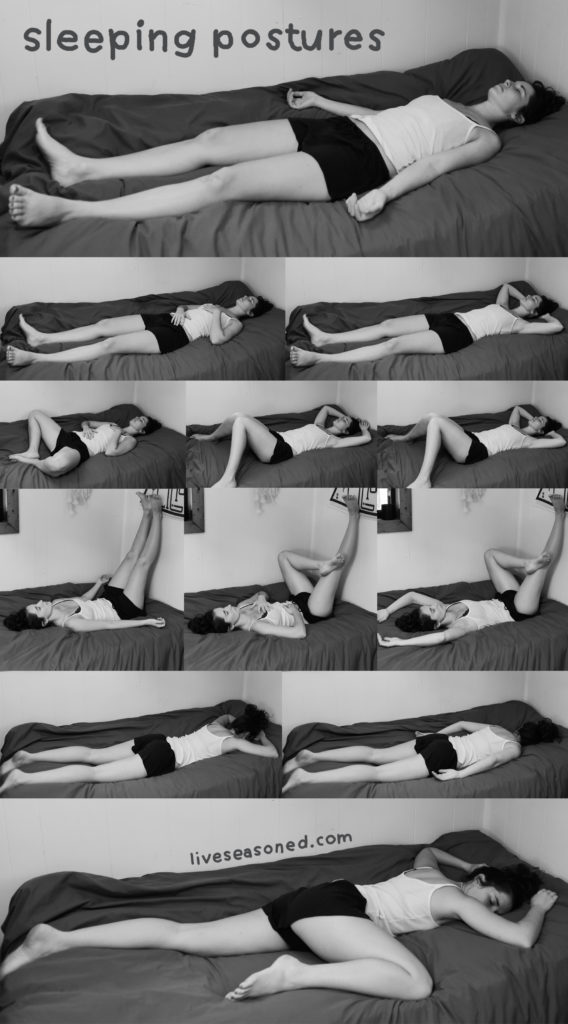
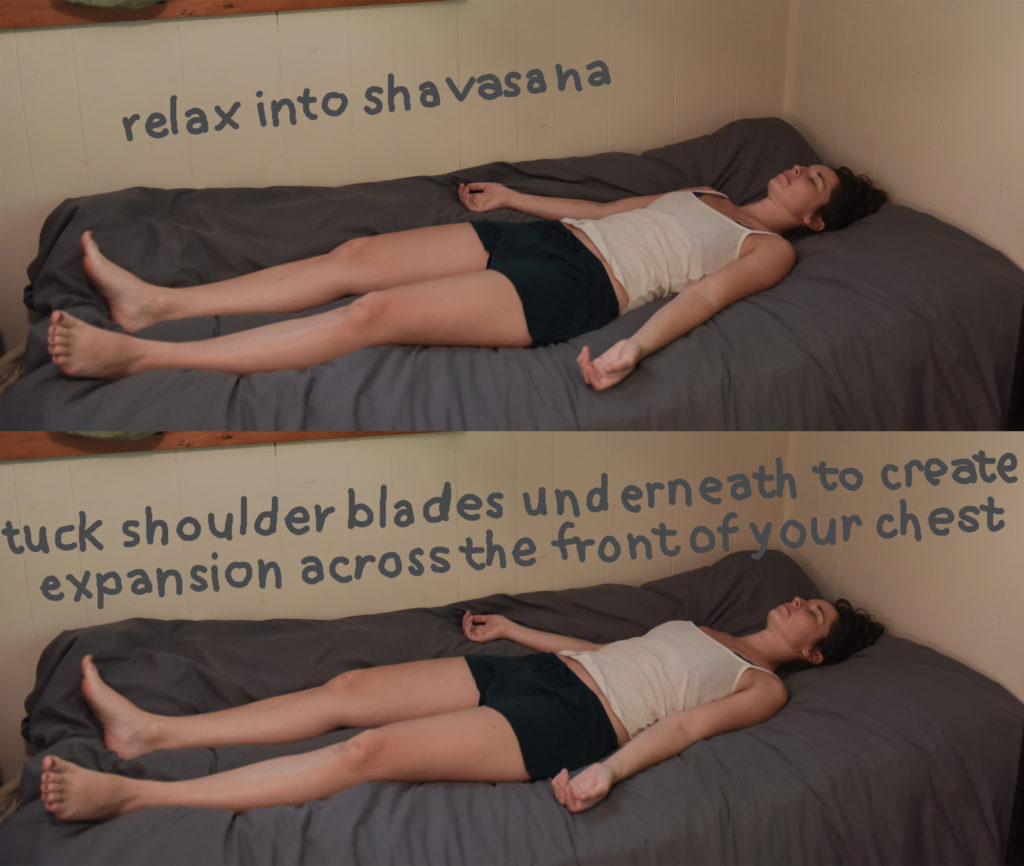
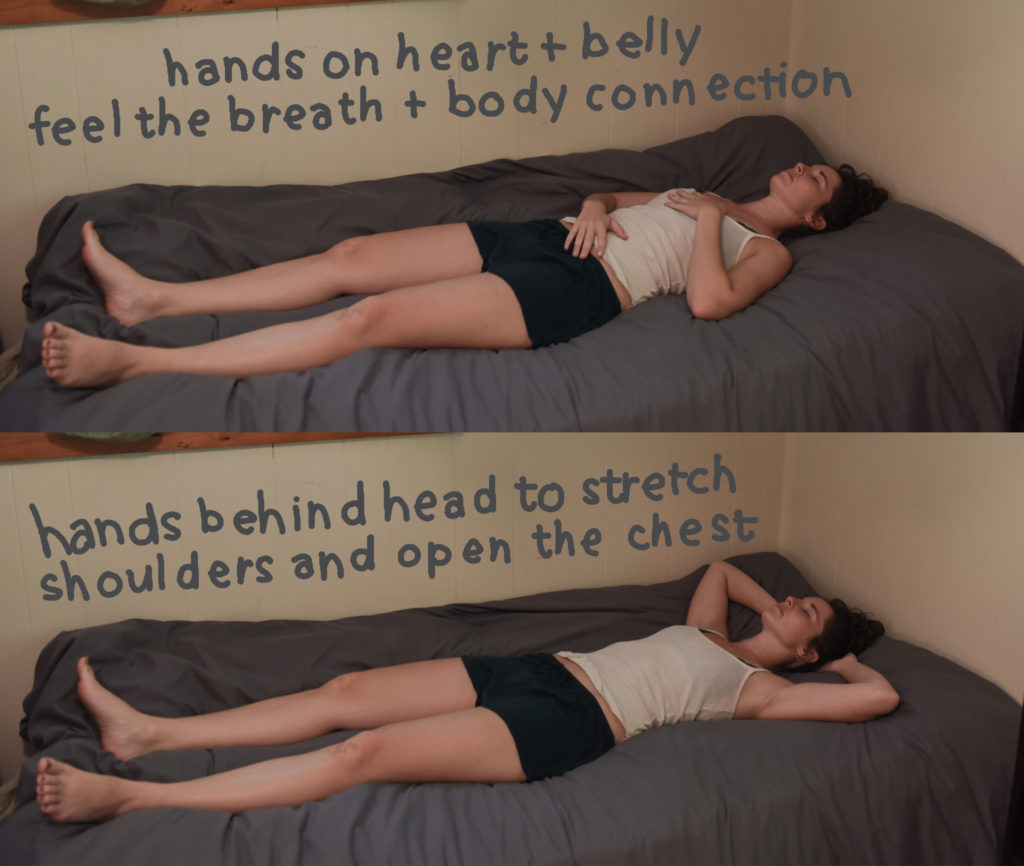
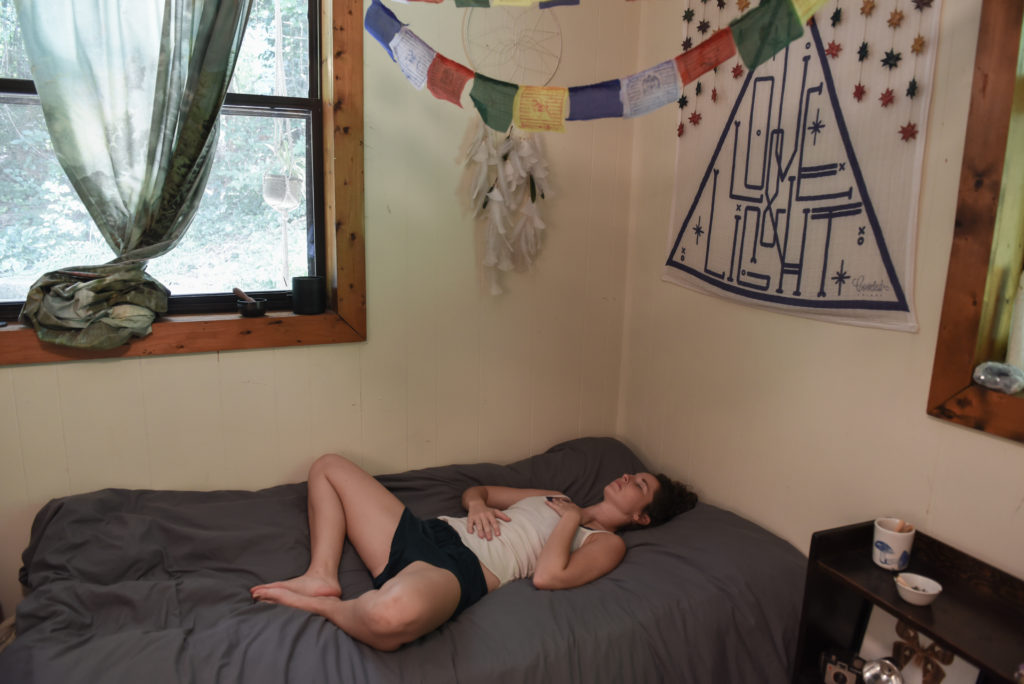
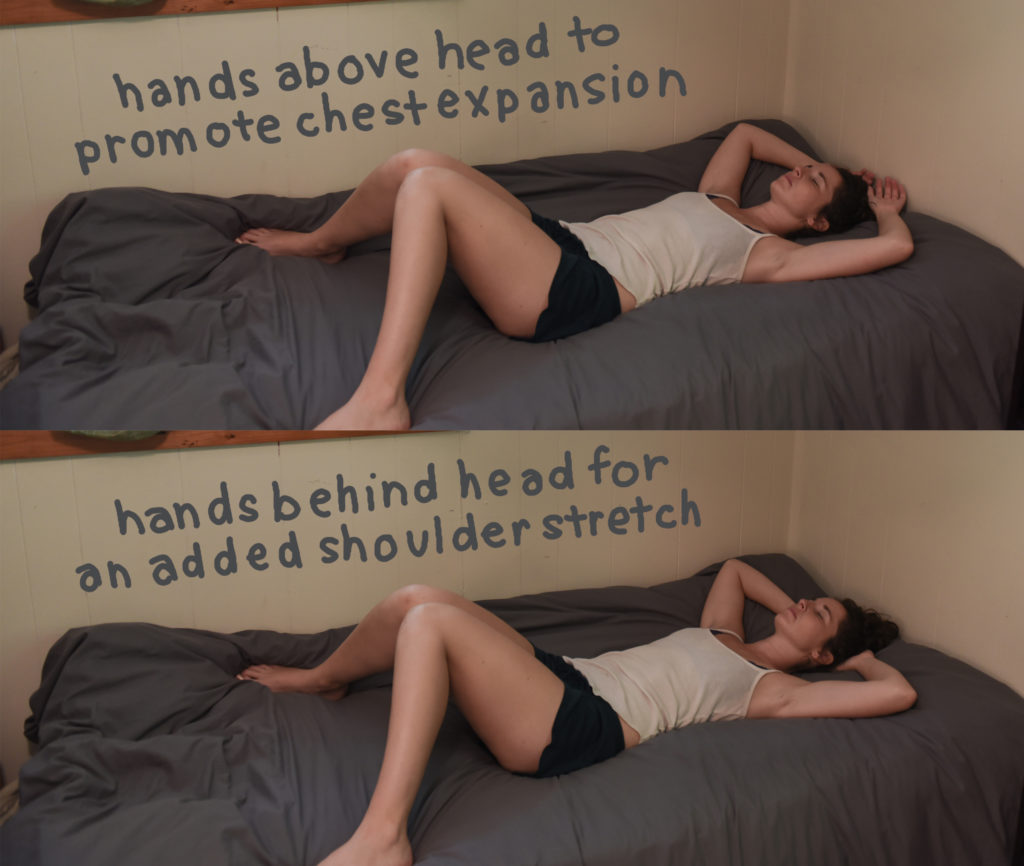
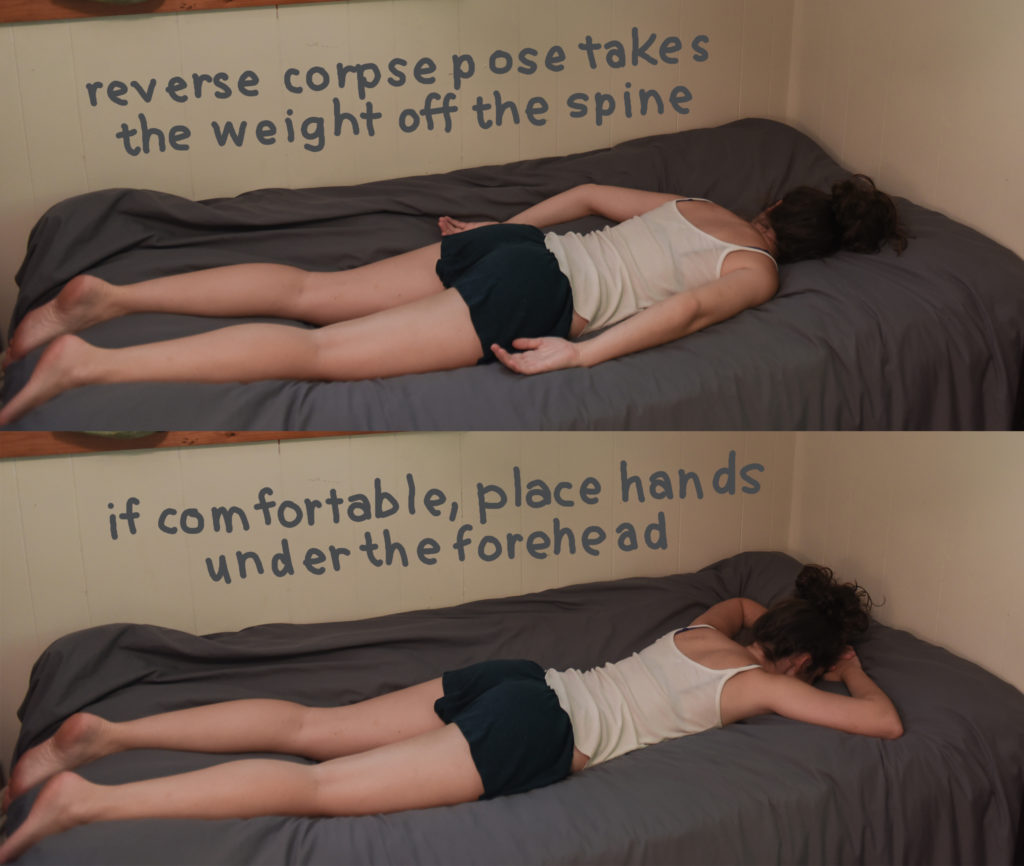
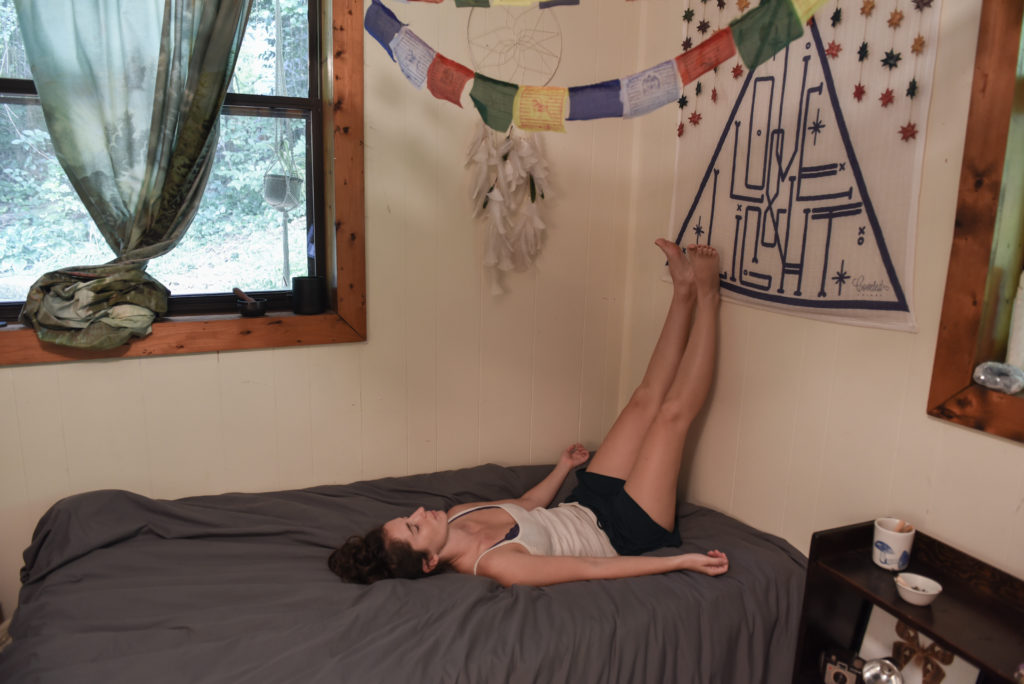
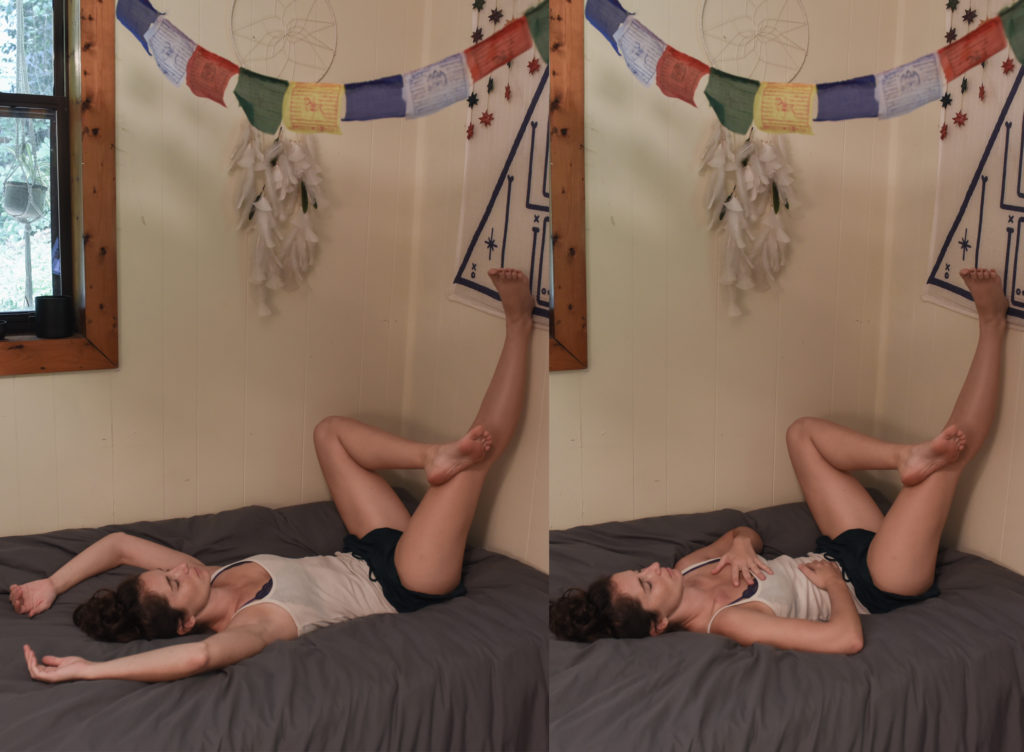
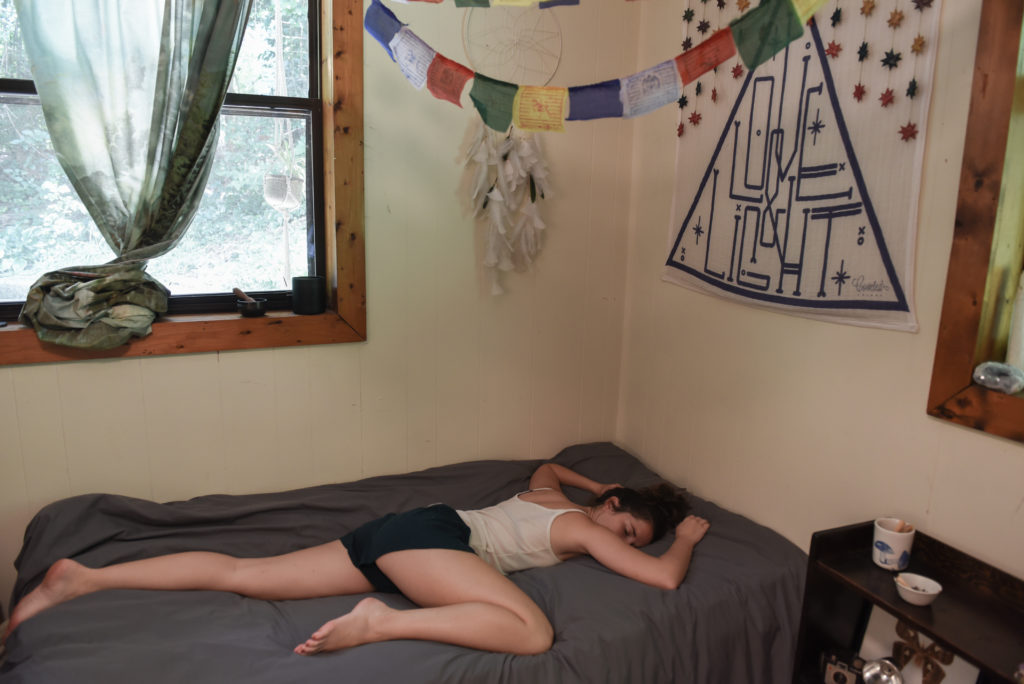
Low lunge is one of the easy beginner’s postures that stretches your hips and groins. This is also the most effective yoga poses for wider hips. However, people who are suffered from a knee injury should avoid this posture.